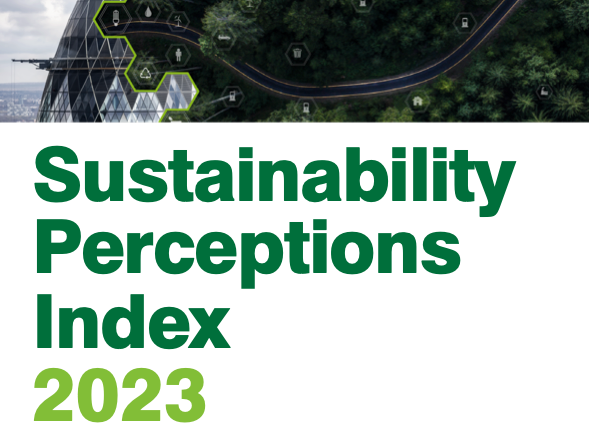
Companies need to pay closer attention to customer perceptions of sustainability and see it as a huge financial benefit which adds real value to an organisation, according to a new report from Brand Finance in association with the International Advertising Association.
Brand Finance and the IAA reveal the financial value of sustainability as perceived by the customers of the world’s biggest brands. As part of the analysis, Brand Finance evaluated how sustainable each brand is perceived to be, allocating a ‘Sustainability Perceptions Score’ – after stripping out the impact of revenues – to see which brands consumers think are the most committed to sustainability.
The Brand Finance Sustainability Perceptions Index, released at the World Economic Forum in Davos, reveals that major global brands such as Amazon, Tesla, Apple and Alphabet each have billions of dollars contingent on carefully managing a reputation for a commitment to sustainability.
The report shows that Amazon has the most at stake, with a sustainability perceptions value of US$19.9bn. Other notable brands at the top of the ranking include Tesla (US$17.8 bn), Apple (US$14.65 bn), and Google (US$14.6 bn).
The report also reveals that consumers are fairly trusting of brands’ sustainability related communication, with 62 per cent believing claims about sustainability made by brands. However, 79 per cent of consumers also said that they had reduced their use of a brand having discovered it was acting in an unsustainable way, reinforcing the imperative for brands to communicate clearly, authentically and accurately.
Tesla, IKEA and Patagonia performed well across a wide range of markets. Lush and The Body Shop scored very highly in the UK. In France, Yves Rocher and tyre brand Michelin stood out, while Brazilian cosmetics giant Natura scored highly in its home market.
Commenting on the report, Sasan Saeidi, the IAA’s World president and chairman, said: “We are extremely proud to be associated with Brand Finance on the release of its first Brand Finance Sustainability Perceptions Index report in Davos. We want to ensure sustainability becomes an even bigger focal point for us at the IAA in 2023.”
Saeidi, who is also the CEO of Wunderman Thompson, added: “Measuring the sustainability perception of some of the world’s biggest brands is quite unique as it opens up areas of self-reflection as a means to assess progress or the dialling up of efforts. We need more brands to commit authentically to the sustainability cause and this report from Brand Finance really helps us put the topic of sustainability into perspective.”
Dagmara Szulce, managing director of IAA Global, said: “As consumers become more aware of environmental and social issues, they are increasingly taking into account a company’s sustainability practices when making purchasing decisions. If a company is perceived as not being environmentally or socially responsible, it may lead to negative perceptions of the brand and ultimately result in a decrease in sales and customer loyalty. CMOs should therefore consider incorporating sustainability into their marketing strategies to appeal to conscious consumers and mitigate brand value erosion.”
Robert Haigh, brand finance strategy and sustainability director, said: “For the first time, companies can now see the financial value that is tied to a reputation for acting sustainably. Whether they are seen as sustainability champions or not, the world’s biggest brands have hundreds of millions of dollars’ worth of value contingent on how sustainable they are perceived to be”
Haigh concluded: “Failing to communicate clearly about ESG topics puts value at risk. Consumers are relatively trusting of sustainability claims, and clearly value brand’s commitment to sustainability, so under-communicating or ‘green-hushing’ is a missed opportunity. On the other hand, communication must be authentic and supported by action, because over-claiming or ‘greenwashing’ exposes the business to hundreds of millions of dollars of reputational damage.”









